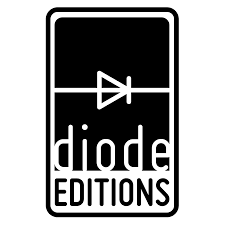August may be coming to an end, but September presents a new chance to get a little love—and money—for your writing: Submit to contests with deadlines of September 5, 8, 15, 16, and 26! Among the prizes are $78,000 fellowships from Harvard University, $50,000 fellowships from the John Simon Guggenheim Memorial Foundation, publication of a poetry collection and chapbook, and awards for individual poems, essays, and stories. All contests offer a cash prize of $1,000 or more, and two are free to enter. Good luck, writers!
Coffee-House Poetry
Troubadour International Poetry Prize
A prize of £2,000 (approximately $2,507) is given annually for a single poem. A second-place prize of £1,000 (approximately $1,254) is also given. Both winners receive publication on the Coffee-House Poetry website and an invitation to read alongside the contest judges at a celebration on December 5. Joshua Bennett and Victoria Kennefick will judge. Deadline: September 26. Entry fee: $7.
Dogwood
Literary Awards
Three prizes of $1,000 each and publication in Dogwood are given annually for a poem, a short story, and an essay. Finalists are chosen by the editorial staff and accepted for publication; winners are then chosen from the finalist pool by a guest judge. All entries are considered for publicaton. Deadline: September 5. Entry fee: $12.
Finishing Line Press
New Women’s Voices Chapbook Competition
A prize of $1,500 and publication by Finishing Line Press is given annually for a poetry chapbook by a writer who identifies as a woman and has not yet published a full-length collection. Leah Huete de Maines will judge. All entries are considered for publication. Deadline: September 15. Entry Fee: $20.
Harvard University
Radcliffe Institute Fellowships
Fellowships of $78,000 each, office space at the Radcliffe Institute, and access to the libraries at Harvard University are given annually to poets, fiction writers, and creative nonfiction writers to allow them to pursue creative projects. Writers also receive $5,000 to cover project expenses. Deadline: September 8. Entry Fee: none.
John Simon Guggenheim Memorial Foundation
Writing Fellowships
Fellowships of approximately $50,000 each are awarded annually to poets, fiction writers, and creative nonfiction writers on the basis of “exceptional creative ability.” Citizens and permanent residents of the United States and Canada with a “significant and appropriate record” of publication are eligible. Deadline: September 16. Entry fee: none.
Lightscatter Press
Poetry Prize
A prize of $1,000, 25 author copies, and multimodal publication by Lightscatter Press will be given annually for a poetry collection written by an emerging writer. Hybrid works and multilingual texts which combine English with another language are eligible. Rick Barot will judge. Deadline: September 15. Entry fee: $30.
The Moth
Nature Writing Prize
A prize of €1,000 (approximately $1,089) and publication in the Moth is given annually for a poem, story, or essay that features “an exploration of the writer’s relationship with the natural world.” The winner also receives a weeklong stay at the Circle of Misse artist’s retreat in Missé, France. Max Porter will judge. Deadline: September 15. Entry Fee: $15.
Visit the contest websites for complete guidelines, and check out the Grants & Awards database and Submission Calendar for more contests in poetry, fiction, and creative nonfiction.






